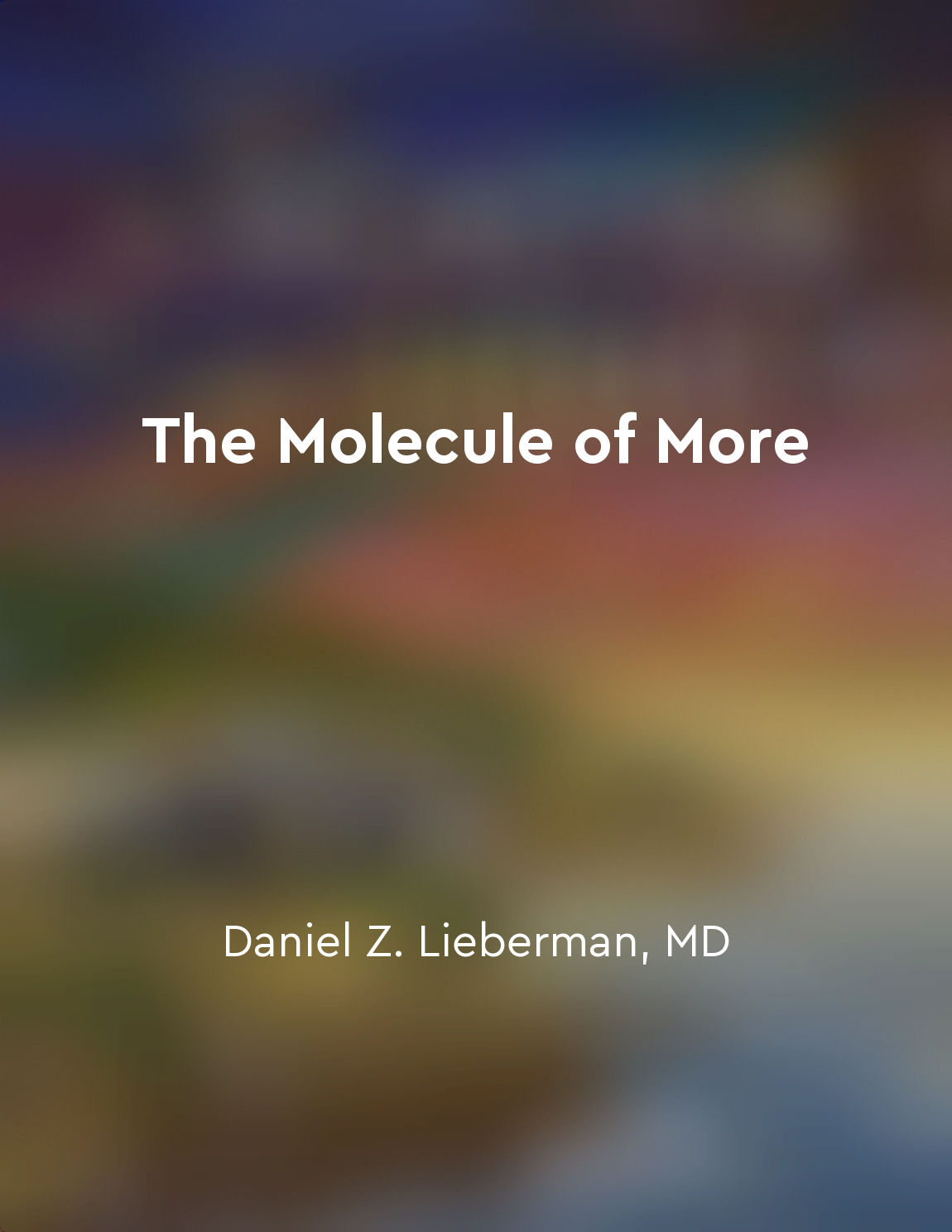Dopamine plays a crucial role in the brain's reward system from "summary" of Never Enough by Judith Grisel
Dopamine is a powerful neurotransmitter that serves as a key player in the brain's reward system. When we engage in activities that bring us pleasure or satisfaction, such as eating a delicious meal or receiving a compliment, dopamine is released in our brains. This release of dopamine reinforces the behavior that led to the pleasurable experience, making us more likely to seek out similar experiences in the future. The brain's reward system is a complex network of neurotransmitters, receptors, and brain regions that work together to regulate our motivation, pleasure, and reward responses. Dopamine is at the center of this system, acting as a signaling molecule that communicates feelings of pleasure and reward to other parts of the brain. When dopamine is released in response to a rewarding experience, it binds to dopamine receptors on neighboring neurons, triggering a cascade of chemical reactions that ultimately lead to feelings of pleasure and reinforcement. This process strengthens the neural connections associated with the rewarding experience, making it more likely that we will seek out similar experiences in the future. However, the brain's reward system is not always a straightforward process. Over time, repeated exposure to rewarding stimuli can lead to changes in the brain's dopamine system, causing a tolerance to develop. This means that we may need to engage in increasingly intense or frequent activities to achieve the same level of pleasure and satisfaction. Furthermore, excessive activation of the brain's reward system can lead to a phenomenon known as "reward deficiency," where individuals may struggle to experience pleasure from everyday activities and may be more prone to seeking out substances or behaviors that provide a quick dopamine boost. Understanding the role of dopamine in the brain's reward system is crucial for understanding addiction and other related behaviors. By learning how dopamine influences our motivations, pleasures, and rewards, we can gain insight into the complex interplay between our brains and our behaviors.Similar Posts
Building a supportive network of friends and colleagues can help us stay motivated and focused on our goals
Connecting with others who share similar goals and ambitions can be a powerful motivator in maintaining focus and drive. When w...

Selfesteem may be affected
When it comes to consuming pornography, one of the key things to consider is how it can impact your self-esteem. Watching porn ...
Happiness is a combination of genetics and environment
Happiness is not solely determined by our genetics or our environment; rather, it is a complex interplay between the two. Our g...
Convenience can make or break a habit
The ease with which we can engage in a habit plays a significant role in whether we will stick with it or not. When a habit is ...
Personalized strategies are key to sustaining happy habits
To sustain happy habits, it is essential to understand that what works for one person may not work for another. This is because...
The significance of community support in achieving goals
Achieving your goals can be a challenging journey, but having a supportive community by your side can make all the difference. ...
Support from friends and family is crucial in overcoming addiction
Recovery from addiction is a daunting and arduous journey that often proves insurmountable without a strong foundation of suppo...

Dopamine can lead to impulsive behavior
In the brain, dopamine is like the gas pedal that propels us forward toward our goals and desires. It gives us the drive and mo...
